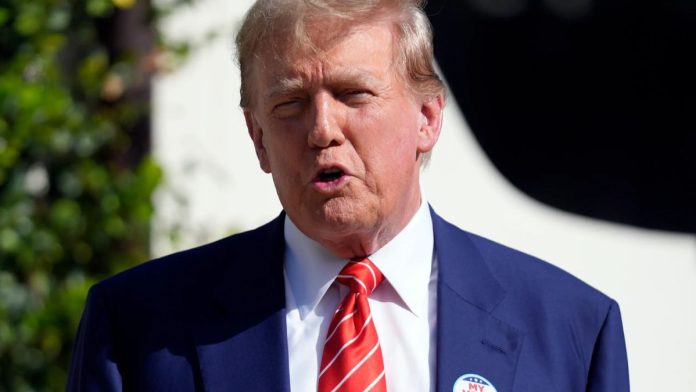Donald Trump’s re-emergence on mainstream social media platforms ahead of the 2024 U.S. Presidential Election is dramatically altering the political landscape. His social media activity, marked by bold rhetoric and contentious posts, is reshaping public discourse, intensifying debates about free speech, platform regulation, and the influence of social media on politics.
Trump’s Return to Social Media
After being banned from major platforms following the January 6, 2021 Capitol riots, Trump’s accounts were restored on X (formerly Twitter), Facebook, and YouTube. The bans were initially implemented due to concerns about incitement of violence, but in the lead-up to the 2024 elections, platforms decided to reverse their decisions. X, owned by Elon Musk, and Meta, led by Mark Zuckerberg, have adjusted their approaches, balancing between enforcing community guidelines and allowing open political dialogue.
These reversals have not come without challenges. Platforms face mounting pressure to maintain a safe environment for users while avoiding accusations of political bias. Trump’s social media comeback is not just about reconnecting with his base; it’s a strategic move to regain his digital influence in the political arena.
Truth Social’s Role in Trump’s Campaign
In addition to returning to mainstream platforms, Trump has maintained an active presence on Truth Social, his social media platform launched in 2022. Created as an alternative to what Trump perceives as biased media platforms, Truth Social appeals to a specific audience that prioritizes free speech, especially among conservative and pro-Trump communities. According to a Pew Research Center study, 27% of U.S. adults have heard of Truth Social, but only a small fraction use it regularly for news. This indicates that while Truth Social has a dedicated user base, its impact remains limited compared to more established platforms like Facebook or YouTube.
Truth Social has positioned itself as a free-speech haven, though it has faced criticism for its inconsistent moderation policies. For instance, while initially rejecting violent content, the platform has also been accused of blocking posts that oppose its ideological stance. These dynamics make Truth Social a microcosm of the larger debate about content moderation and political speech on social media.
Ethical Concerns and Conflicts of Interest
Trump’s involvement in Truth Social through Trump Media & Technology Group, in which he holds a significant stake, has raised ethical questions. His nearly 60% ownership in the company presents potential conflicts of interest, especially as corporate entities and foreign actors might seek to curry favor with him by buying stock or advertising on his platform. Ethics watchdogs have flagged concerns about this blurring of lines between political influence and media ownership, which could undermine public trust in the objectivity of media and social platforms.
Implications for Political Discourse
The 2024 presidential race, featuring a digitally revitalized Trump, highlights how social media has become a critical battleground for political discourse. Trump’s posts often drive media cycles, set agendas, and mobilize his supporters. However, his unpredictable use of social media also keeps platform regulators on high alert, grappling with how to handle misinformation, inflammatory rhetoric, and the broader impact of his messaging on the political climate.
Elon Musk’s acquisition of X has introduced additional layers of complexity. Musk’s free speech absolutism contrasts sharply with traditional content moderation practices, creating a platform where Trump’s unfiltered style can thrive. This approach has intensified debates about the role of social media platforms in moderating content without suppressing political voices.
Trump’s renewed social media presence underscores the evolving nature of digital political engagement. For his supporters, platforms like Truth Social and X provide unmediated access to his messages, fostering a sense of community and loyalty. However, for critics, these platforms amplify concerns about misinformation, divisive rhetoric, and the challenge of ensuring fair and balanced political discourse.
A Pivotal Moment for Social Media and Politics
As the 2024 election approaches, the intersection of social media and politics is under scrutiny like never before. Trump’s strategic use of these platforms highlights their powerful role in shaping public opinion, rallying political bases, and influencing voter behavior. The ongoing battle between free speech and responsible moderation will continue to define the relationship between politics and social media, with Trump at the center of this dynamic.
The next months leading up to the election will be pivotal, not just for Trump’s campaign but also for the future of social media as a tool of political engagement. How platforms manage Trump’s presence could set precedents for how political figures utilize social media in the digital age, influencing the rules of engagement for years to come.
Must Read: US Debt Crisis: Will Harris or Trump Fix the $35 Trillion Elephant in the Room?






